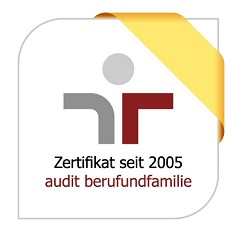Bioinformatic Postdoc in Cancer Epigenomics
Reference number: 2024-0374
- Heidelberg
- Full-time
- Cancer Epigenomics

“Research for a life without cancer" is our mission at the German Cancer Research Center. We investigate how cancer develops, identify cancer risk factors and look for new cancer prevention strategies. We develop new methods with which tumors can be diagnosed more precisely and cancer patients can be treated more successfully. Every contribution counts – whether in research, administration or infrastructure. This is what makes our daily work so meaningful and exciting.
The Division of Cancer Epigenomics headed by Prof. Christoph Plass is offering an initial 2-year postdoc (extension possible) position for Cancer Epigenomics. Our division (https://www.dkfz.de/en/CanEpi) is a dynamic research team focused on understanding epigenetic contributions to carcinogenesis and therapy resistance in solid tumors (lung [1], breast [2], prostate [3]) and leukemia [4] with a focus on state-of-the-art wet lab technologies and computational solutions [5,6].
1. Llamazares-Prada M, Schwartz U, Pease DF, Pohl ST, Ackesson D, Li R, Behrendt A, Tamas R, Richter M, Muley T, et al: Epigenetic deregulation of IFN and WNT pathways in AT2 cells impairs alveolar regeneration. bioRxiv 2023.
2. Zhang G, Jurinovic V, Bartels S, Christgen M, Christgen H, Kandt LD, Raap M, Klein J, Katzke A-L, Hofmann W, et al: Development and validation of multivariate predictors of primary endocrine resistance to tamoxifen and aromatase inhibitors in luminal breast cancer reveal drug-specific differences. medRxiv 2023.
3. Gerhauser C, Favero F, Risch T, Simon R, Feuerbach L, Assenov Y, Heckmann D, Sidiropoulos N, Waszak SM, Hübschmann D, et al: Molecular Evolution of Early-Onset Prostate Cancer Identifies Molecular Risk Markers and Clinical Trajectories. Cancer Cell 2018, 34:996-1011 e1018.
4. Weichenhan D, Riedel A, Sollier E, Toprak UH, Hey J, Breuer K, Wierzbinska JA, Touzart A, Lutsik P, Bahr M, et al: Altered enhancer-promoter interaction leads to MNX1 expression in pediatric acute myeloid leukemia with t(7;12)(q36;p13). Blood Adv 2024, 8:5100-5111.
5. Scherer M, Singh I, Braun M, Szu-Tu C, Kardorff M, Rühle J, Frömel R, Beneyto-Calabuig S, Raffel S, Rodriguez-Fraticelli A, Velten L: Somatic epimutations enable single - cell lineage tracing in native hematopoiesis across the murine and human lifespan. bioRxiv 2024
6. Kelly K, Scherer M, Braun MM, Lutsik P, Plass C: EpiCHAOS: a metric to quantify epigenomic heterogeneity in single-cell data. Genome Biol 2024, 25:305.
Your Tasks
While the genetic components of therapy resistance have been extensively studied in various cancer types, non-genetic, including epigenetic, mechanisms of therapy resistance remain largely unexplored. Multiple mechanisms, including pre-existing persister cells or acquired resistance mediated by cell plasticity, will be tested in experimental model systems and patient-derived material using state-of-the-art single-cell epigenomic technologies.
During this project, the candidate will use existing computational tools and develop new software solutions to understand epigenetic dysregulation leading to non-genetic therapy resistance. The candidate will investigate common mechanisms of cancer therapy resistance across the different cancer entities studied in the department, including solid tumors (lung, breast, prostate) or leukemia.
Specifically, in close collaboration with technicians and wet-lab experts in the division, the candidate will analyze bulk (e.g., ACT-seq, ATAC-seq, WGS data, ONT long read sequencing) and single cell (scRNA-seq, scATAC-seq, scTAM-seq) data to understand epigenetic mechanisms of therapy resistance.
Your Profile
We are looking for a highly motivated bioinformatician or computational biologist with a PhD degree, interest in cancer research, and the ability to work in teams with molecular biologists.
The candidate should have the following skills:
- Good knowledge of R and/or Python
- Previous experience in genomic data processing
- Interest in interdisciplinary research
- Knowledge of epigenomic data analysis is a plus
- Fluency in English, German language skills are not required
We Offer
Excellent framework conditions: state-of-the-art equipment and opportunities for international networking at the highest level
Remuneration according to TV-L incl. occupational pension plan and capital-forming payments
30 days of vacation per year
Flexible working hours
Possibility of mobile work and part-time work
Family-friendly working environment
Sustainable travel to work: subsidized Germany job ticket
Our Corporate Health Management Program offers a holistic approach to your well-being
Develop your full potential: access to the DKFZ International Postdoc Program and DKFZ Career Service with targeted offers for your personal development to further develop your talents
Are you interested?
Then become part of the DKFZ and join us in contributing to a life without cancer!
Michael Scherer
Phone: +49 6221 42 3309
We are convinced that an innovative research and working environment thrives on the diversity of its employees. Therefore, we welcome applications from talented people, regardless of gender, cultural background, nationality, ethnicity, sexual identity, physical ability, religion and age. People with severe disabilities are given preference if they have the same aptitude.

